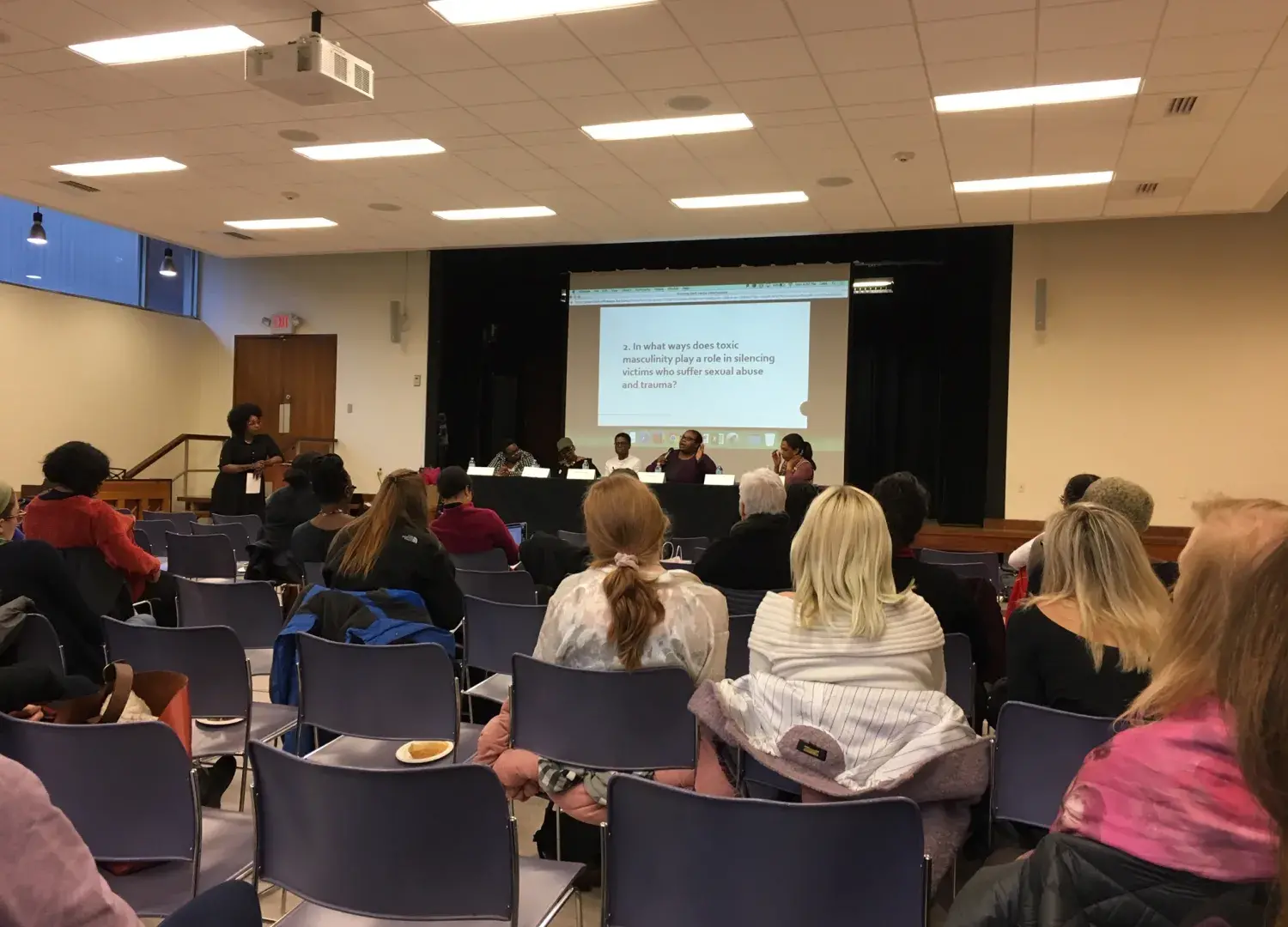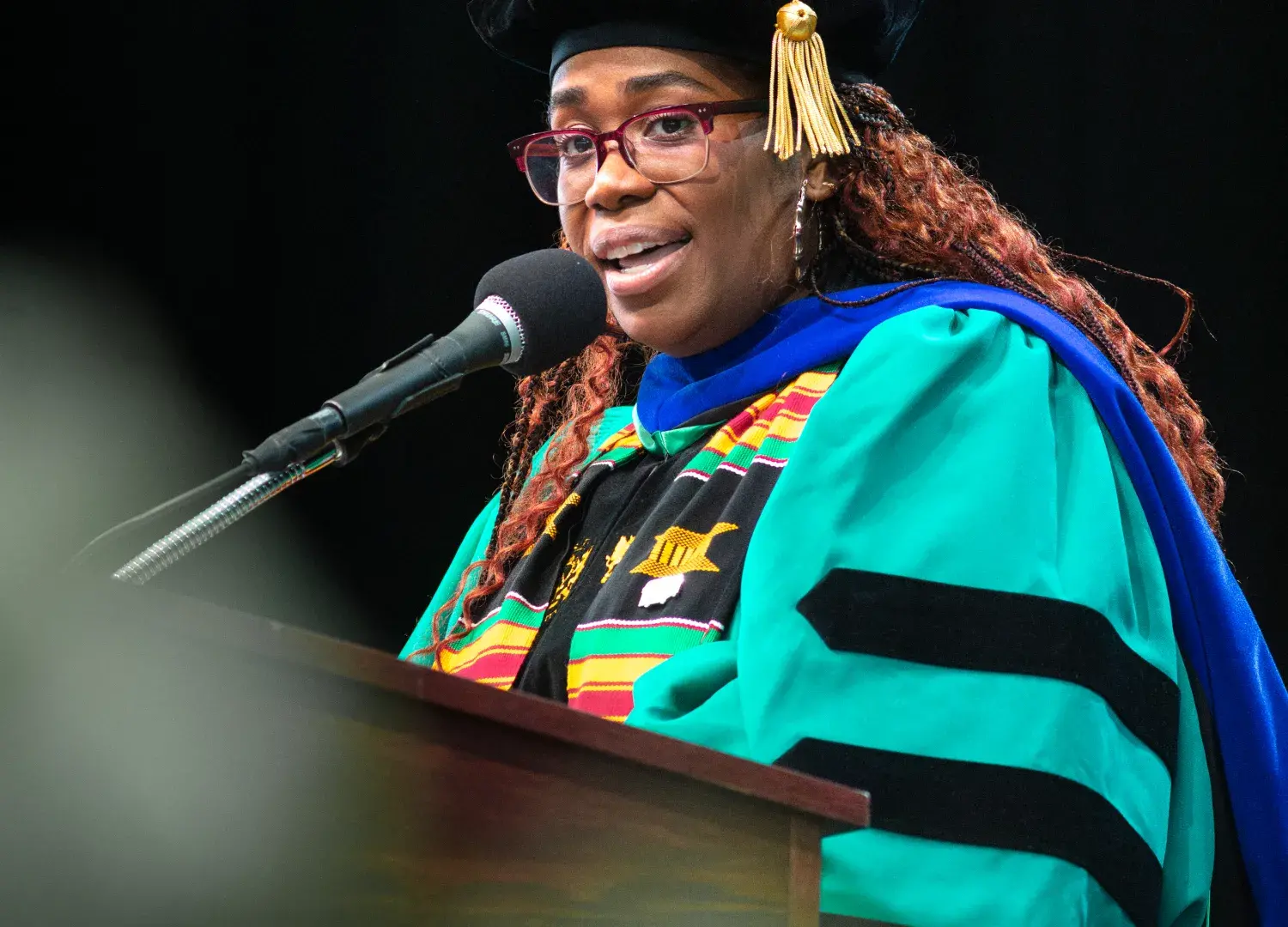A panel of activists and educators spoke Monday afternoon in Washburn Auditorium about sexual abuse and other violence, both within the black community and inflicted by society on the black community. The discussion was a mixture of personal anecdotes and headline-making incidents, including those covered in the widely watched, six-episode “Surviving R. Kelly” television documentary.
And this legacy of oppression has a surfeit of villains, from the slave traders of the 18th and 19th century, to individual perpetrators, to active enablers, to witnesses who remain silent.
Moderated by Bwann Gwann, executive assistant to College of Liberal Arts and Sciences Dean Steven Shapiro, “Surviving Black Trauma: Campus Discussion Regarding the Lifetime Docuseries ‘Surviving R. Kelly,’” featured an unflinching look at oppression related and unrelated to the controversial entertainer. Panelists included Court King of the Providence, Rhode Island-based Youth In Action; Bernadine Desanges, a Boston-based motivational speaker, spoken-word artist and blogger; Graduate School of Arts and Social Sciences faculty members Vanessa Prosper and Michelle Vital, and Yvelande Boursiquot, a licensed clinical social worker out of Fuller Hospital in South Attleboro, Massachusetts.
“So many people that were involved in R. Kelly’s life were complicit in harboring this behavior,” Gwann said, after playing for the 40 audience members short clips from the documentary, as well as a related episode of “Red Table Talk,” an online talk show hosted by actress Jada Pinkett Smith, her daughter, Willow, and mother, Adrienne Banfield Norris.
Panelists discussed allegations of Kelly isolating targets of his alleged sexual predation from their families, directing his hirelings to funnel all attempts at communication through him. They also discussed how the singer and producer for years evaded accountability for his actions by virtue of his role as a famous, even beloved, artist. While people on his payroll ran interference for him, others simply refused to believe that one so accomplished and well-known could be guilty of sexual assault.
The same sort of aura of protection surrounded legendary comedian and actor Bill Cosby for years, before he was convicted in April 2018 of three counts of sexual assault, panelists added.
Cosby was accused by dozens of women of drugging and incapacitating them prior to assaulting them. R. Kelly (born Robert Sylvester Kelly in 1967) has been accused of a wide range of sexual misconduct, from being at the center of a sex cult, to raping at least one underage girl and possession of child pornography (charges that were dropped or followed by acquittal, respectively).

